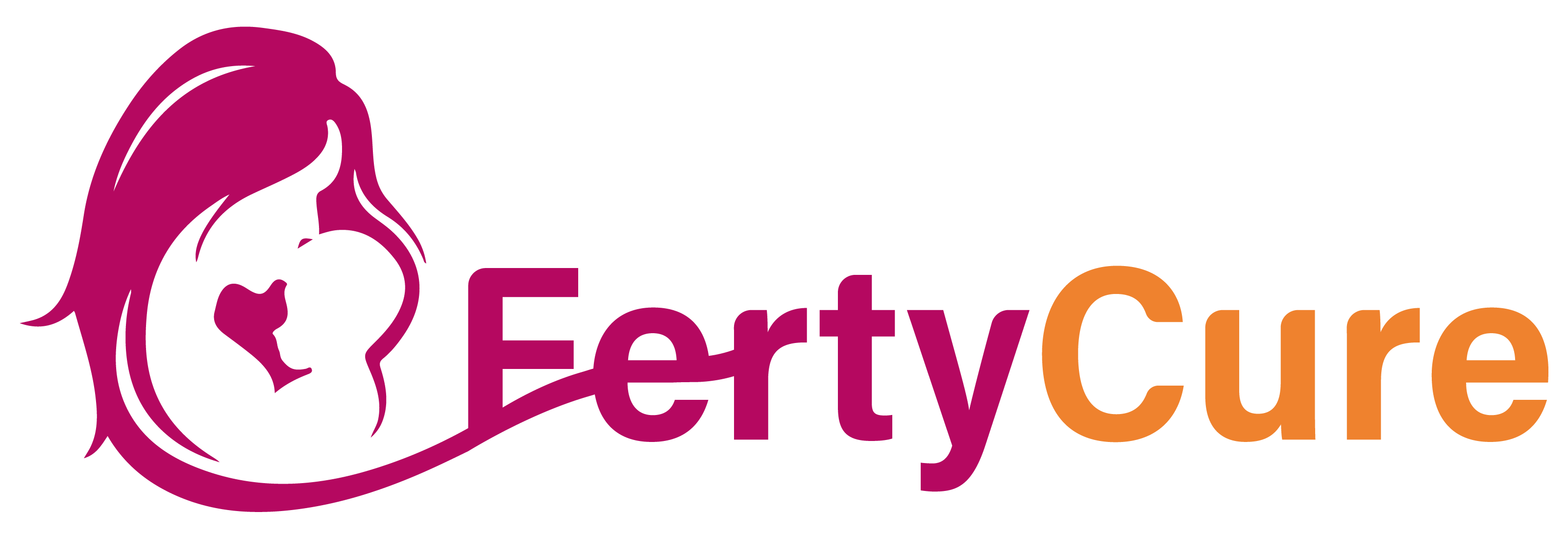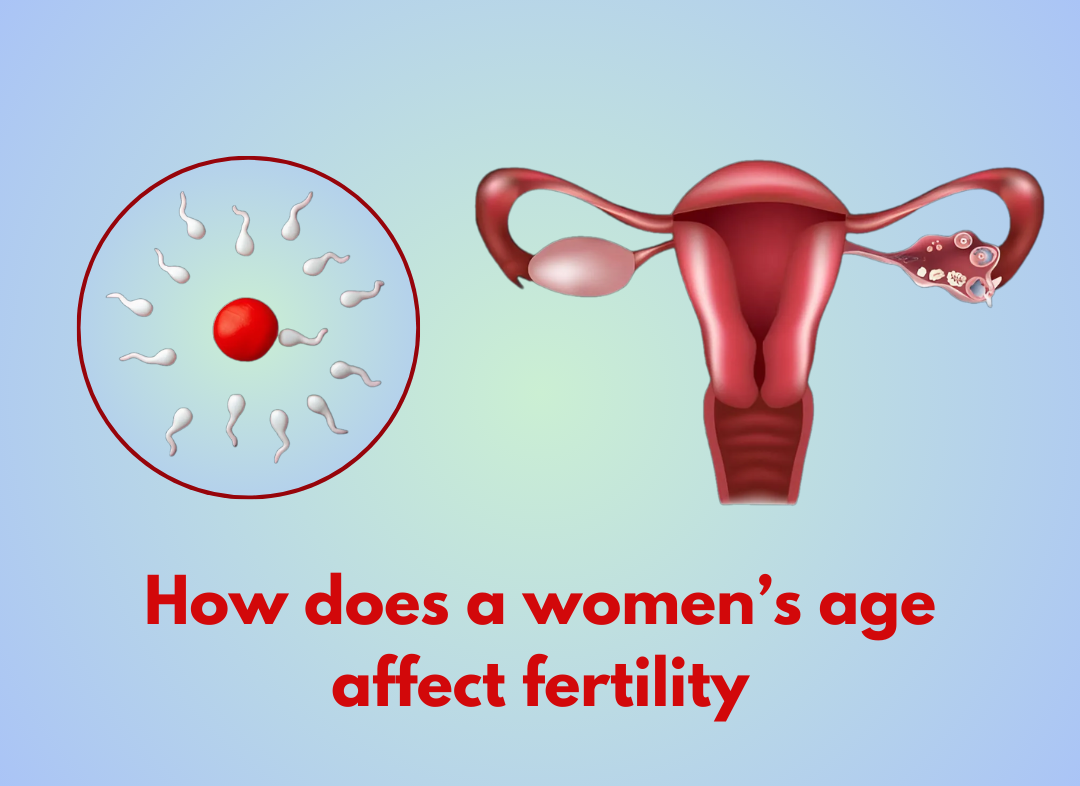Table of Contents
How does a women’s age affect fertility?
Fertility is a significant concern for many women, especially when considering age as a factor. As women age, their ability to conceive naturally declines, often due to physiological changes in their reproductive system. While modern fertility treatments can assist many couples, understanding the impact of age on fertility is crucial for women who are planning to start a family.
The Biological Clock: How Age Influences Fertility
- Egg Quantity and Quality
Women are born with a finite number of eggs, approximately one to two million at birth. When puberty hit, this number decreases from 300,000 to 400,000. Throughout a woman’s reproductive years, eggs are gradually lost with each menstrual cycle. By the time a woman reaches her mid-30s, her ovarian reserve significantly declines, and by the age of 40, fewer than 10% of the original egg supply remains.
In addition to the quantity of eggs, age affects the quality of the remaining eggs. As a woman ages, eggs are more likely to develop chromosomal abnormalities, which can lead to difficulties in conceiving or an increased risk of miscarriage. Research suggests that by age 40, over half of a woman’s eggs may be chromosomally abnormal .
- Ovulation and Menstrual Changes
As women age, the regularity of their menstrual cycles can become more unpredictable. Irregular ovulation may result in fewer chances of conception. For example, a 25-year-old woman may ovulate almost every month, while a 40-year-old woman might ovulate less frequently, leading to fewer opportunities to get pregnant.
- Hormonal Changes
The hormonal balance that supports ovulation and fertility naturally changes with age. As women age, levels of follicle-stimulating hormone (FSH) and luteinizing hormone (LH) tend to rise, which can interfere with the consistency of ovulation and the release of eggs. Elevated FSH levels, in particular, are associated with reduced ovarian function and the onset of menopause .
- Risks of Pregnancy Complications
As women age, they are more likely to experience complications during pregnancy. For instance, pregnancies in women over 35 are considered “high-risk” due to the increased chance of conditions like gestational diabetes, high blood pressure, and preeclampsia. The risk of miscarriage also rises sharply after the age of 35, with research showing rates as high as 30% to 40% for women aged 40 and above .
Fertility in Your 20s vs. 30s vs. 40s
- In Your 20s: During this period, women are at their most fertile. The eggs quality are generally high and menstrual cycles are regular. The chance of getting pregnant in any given month is approximately 25% to 30%. Most women do not face significant fertility issues in their 20s.
- In Your 30s: Fertility gradually declines in the early 30s and more significantly after the age of 35. The chances of conception in a given month fall to around 15% to 20%. Miscarriage rates and chromosomal abnormalities, such as Down syndrome, also increase after age 35 .
- In Your 40s: By the time a woman reaches her 40s, her fertility is markedly reduced. The chance of conception in a given month drops to less than 5%. While many women can conceive with assisted reproductive technologies, such as IVF, the success rates are generally lower in women over 40.
Assisted Reproductive Technologies and Age
While age-related fertility decline is a natural process, assisted reproductive technologies (ART) have provided hope for many women. In vitro fertilization (IVF), for instance, can help older women achieve pregnancy, but success rates are strongly tied to age. According to data from the Centers for Disease Control and Prevention (CDC), the success rate of IVF using a woman’s own eggs is about 40% for women under 35 but drops to around 4% for women over 42 .
Egg Freezing as a Fertility Preservation Option
For women who are not yet ready to have children but are concerned about age-related fertility decline, egg freezing (oocyte cryopreservation) is a viable option. This process includes fertilizing a woman’s eggs, freezing them, and storing them for future use. It is most effective when performed before the age of 35, as younger eggs are of higher quality and more likely to result in a successful pregnancy later in life .
Research Supporting Age and Fertility Decline
- Study on Ovarian Reserve: A study published in Human Reproduction found that ovarian reserve diminishes rapidly in women over the age of 35. The number of antral follicles, which are used to estimate egg quantity, decreases significantly during this time .
- Chromosomal Abnormalities: Dr. Sherman Silber did a research at the Infertility Center of St. Louis concluded that women over 40 have more than a 50% chance of their eggs having chromosomal abnormalities .
- IVF Success Rates: According to the European Society of Human Reproduction and Embryology (ESHRE), IVF success rates drop by more than half after the age of 35. ESHRE recommends that women who want to delay pregnancy consider egg freezing before this age .
Conclusion
A woman’s age is one of the major factor affecting fertility. As women grow older, both the number and quality of eggs decline, and the likelihood of natural conception decreases. While assisted reproductive technologies offer options for older women, success rates are significantly tied to age. Understanding how age affects fertility allows women to make informed decisions about family planning and explore fertility preservation options if necessary.
Research underscores the importance of early intervention for those concerned about fertility decline, making it vital for women to consider their reproductive goals as they age. Whether through natural conception, ART, or egg freezing, knowing how age impacts fertility is the first step in navigating the path to parenthood.
FAQs
- At what age does fertility start to decline in women?
Women’s fertility generally begins to decrease in their early 30s, with a more rapid decline occurring after the age of 35. By the time a woman reaches 40, her fertility has significantly diminished due to the decline in both the number and quality of eggs.
- Can I still get pregnant naturally in my 40s?
While it is possible to get pregnant naturally in your 40s, the chances are lower compared to your 20s and 30s. The likelihood of conception is less than 5% per cycle by age 40, and the risks of miscarriage and chromosomal abnormalities increase. Assisted reproductive technologies like IVF may help, but success rates are lower in women over 40.
- What can I do to improve my fertility as I age?
To improve fertility as you age, maintaining a healthy lifestyle is key. This includes eating a balanced diet, exercising regularly, avoiding smoking and excessive alcohol, and managing stress. You may also want to consider consulting with a fertility specialist to explore options like egg freezing or IVF.

